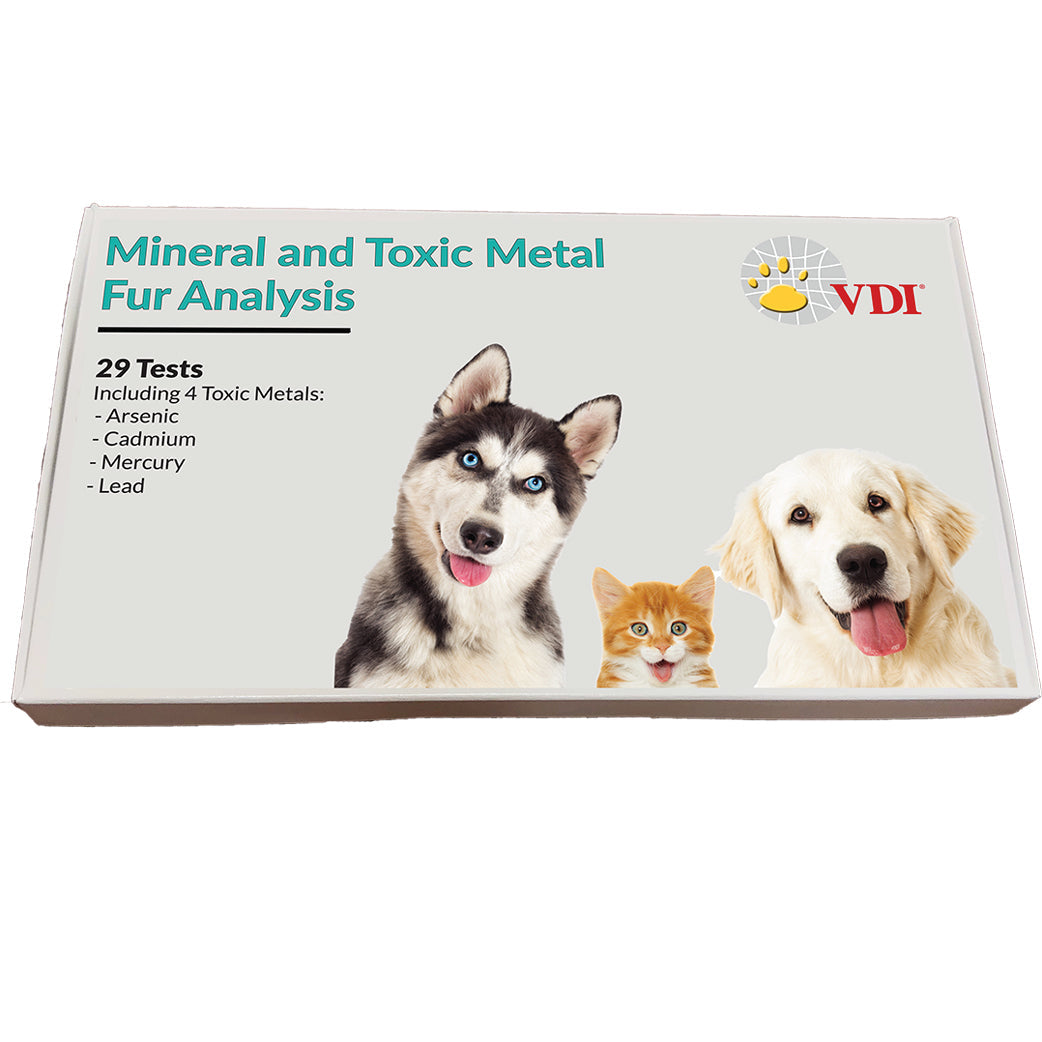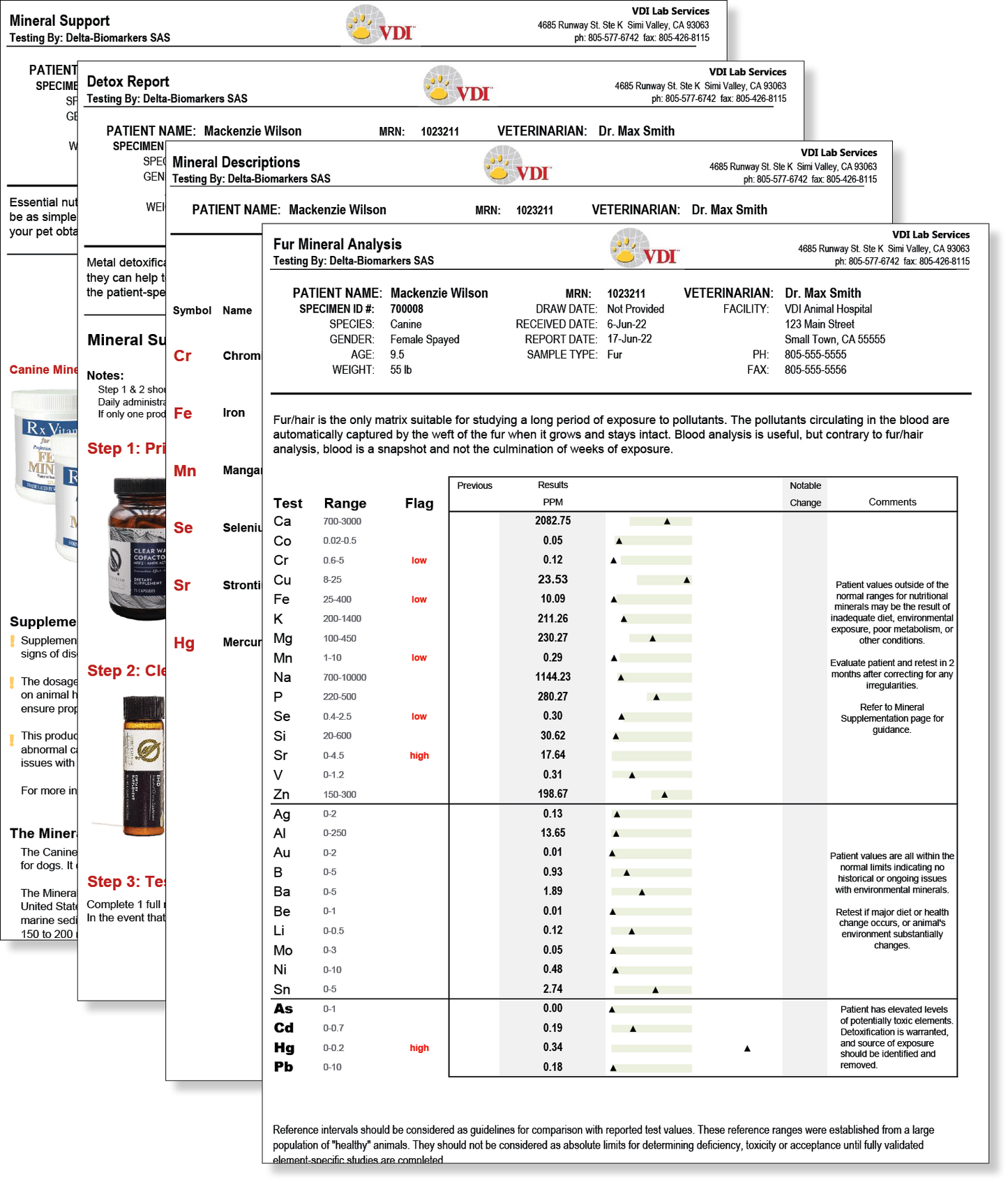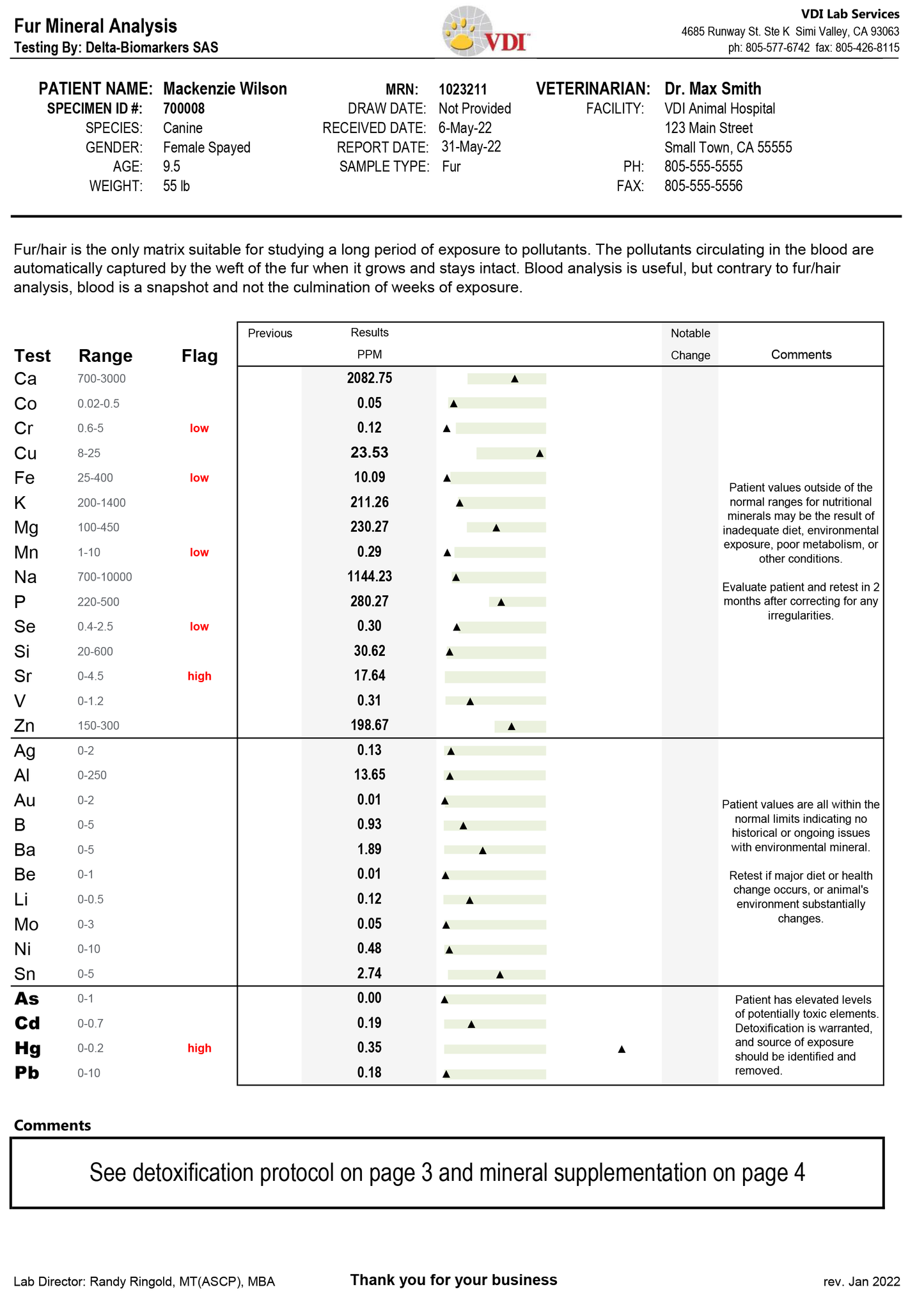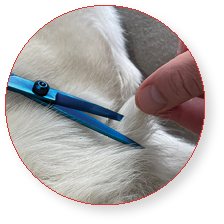VDI Direct
Mineral & Toxic Metal Fur Analysis
Mineral & Toxic Metal Fur Analysis
Couldn't load pickup availability
Test kit for collecting and submitting a FUR sample for analysis of mineral and toxic metal composition. One kit per patient.
29 Elements Tested
- 15 Nutritional Minerals
- 10 Environmental Minerals
- 4 Toxic Metals
Test & Treat
- Mineral supplement recommendations for nutritional deficiencies
- Detoxification protocol when toxic metals are present
Which pets should test?
- ADR pets with undiagnosed signs
- As part of general wellness screening
- Pets living in industrial/manufacturing area
- Pets living around commercial farming
- Pets exposed to chemically treated areas (lawns, landscaping, public areas)
- Pets that eat inorganic objects (toys, remotes, items with batteries, food packaging, etc)
- Pets on a high-fish diet
What’s Needed?
- A small, clean fur sample
Reports Include:
- 29 Mineral & Metal values
- Description of elements outside of reference range
- Trending data if repeat testing is done
- Detoxification protocol (if warranted)
- Mineral Supplementation Guidelines (if warranted)
- Recommended products for both detox and supplementation
IMPORTANT DISCLAIMER:
All VDI lab tests should be interpreted in the context of the pet's entire clinical picture and in consultation with a licensed veterinarian or other qualified professional. The comments, recommendations, and products provided in the VDI lab report are intended to support and inform the medical plan of the attending or consulting veterinarian and should not be considered as medical directives from VDI Laboratory.
Hair Tissue Mineral Analysis (HTMA)
Fur (hair) is the only matrix suitable for studying a long period of exposure to pollutants or dietary deficiencies for macro and microminerals. Pollutants circulating in the blood, through ingestion or inhalation, are automatically captured by the weft of the fur when it grows and stays intact. By analyzing fur, we can assess any prolonged exposures to potentially harmful minerals and metals, as well as identify any shortcomings the pet’s diet may have.
HTMA is most often indicative of slow, long-term (progressive) problems not acute or transient issues. For this reason, abnormal results aren’t typically viewed at critical emergencies, however further investigation, bloodwork, or diagnostics may be suggested.
Share








